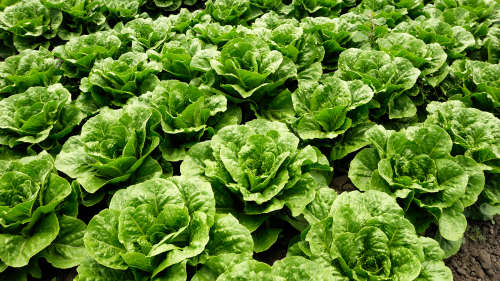FDA Outlines 2020 Action Plan to Help Advance the Safety of Leafy Greens

By: Stephen M. Hahn, M.D., Commissioner of Food and Drugs and Frank Yiannas, Deputy Commissioner for Food Policy and Response
Fresh leafy greens are among the most widely consumed vegetables and an important part of an overall healthy diet. The U.S. Food and Drug Administration is committed to working with the produce industry and government partners to help keep leafy greens safe for Americans.
While millions of servings of leafy greens are consumed safely every day, this produce commodity has been too often implicated in outbreaks of foodborne illness. These include recurring outbreaks of E. coli 0157:H7 infections tied to consumption of romaine lettuce, which is very popular in this country.
We believe one foodborne illness outbreak is one too many. The FDA is committed to doing more.
Today we are releasing the 2020 Leafy Greens STEC Action Plan, which spells out the actions the FDA plans to take this year in the areas of prevention, response and addressing knowledge gaps. STEC stands for Shiga-toxin producing E. coli, which can cause potentially life-threatening illnesses. The most common STEC, E. coli O157:H7, is most often associated with outbreaks.
Food safety is a shared responsibility that involves food producers, distributors, manufacturers, retailers and regulators. We’ve previously called on the leafy green industry to do more, and meeting our own responsibility involves collaboration with state partners on education, training and inspections. This plan is designed to help foster a more urgent, collaborative and action-oriented approach.
Prevention, Response and Knowledge Gaps
In the area of prevention, we will be taking further steps to implement the FDA Food Safety Modernization Act (FSMA) Produce Safety Rule that established science-based minimum standards for the safe growing, harvesting, packing, and holding of produce. Areas covered by these standards include biological soil amendments; animal intrusion; hygiene; and equipment, tools and buildings. The major compliance dates for very small businesses arrived in January, and 2020 marks the second year of conducting routine Produce Safety Rule inspections for other covered farms, other than for sprouts operations, which had earlier compliance dates.
Our prevention-focused plans in the leafy greens sector include providing education and technical assistance to industry and other stakeholders, with greater emphasis on the potential impact of adjacent land uses and continued emphasis on the importance of agricultural water quality. We also hope to issue proposed revisions to FSMA’s agricultural water requirements, for covered produce other than sprouts, in 2020. We extended the compliance dates for those provisions to address feedback about practical challenges in implementing the requirements.
In the area of response, we will soon be publishing an investigation report on three outbreaks of E. coli O157:H7 infections tied to romaine lettuce and leafy greens between November and December 2019. Each was tied to the Salinas Valley in California. We will also be conducting follow-up surveillance of fields in that region during this fall’s growing/harvest season.
While we must act to help prevent and respond to STEC outbreaks with current knowledge, gaps remain in our understanding of how environmental pathogens, including STEC, can contaminate produce. Most leafy greens are grown outdoors, where they are exposed to soil, animals, and water, all of which can be a source of contamination. Developing new science to learn how pathogens survive and move through the environment can help us protect these foods that are mostly eaten without cooking or processing to eliminate microbial hazards. The FDA is already working with experts in state government, cooperative extension and academia to better understand the ecology of pathogens in the Yuma, Arizona, growing region. Discussions have been initiated to conduct the same research in other leafy greens growing regions.
The New Era of Smarter Food Safety initiative aims to foster rapid traceback of contaminated foods to their source and enhance the analysis of data streams to inform prevention efforts.
Affirming FDA’s Commitment
As public health officials, we are concerned by these recurring outbreaks and we believe all involved with the production and sale of fresh leafy greens can do better. As people who have children of our own, we are heartbroken about the families whose lives have been forever changed by these illnesses.
We have an unwavering commitment to protecting the health of the American public. The 2020 Leafy Greens STEC Action Plan demonstrates how we will honor that commitment. We are laser-focused on improving our prevention, response and research efforts with a multi-faceted approach to help keep leafy greens safe for generations to come.
In January, Deputy Commissioner Yiannas visited the Yuma growing region in Arizona to see the food safety procedures in place on growing fields and in harvesting operations. See the photos on Flickr.


